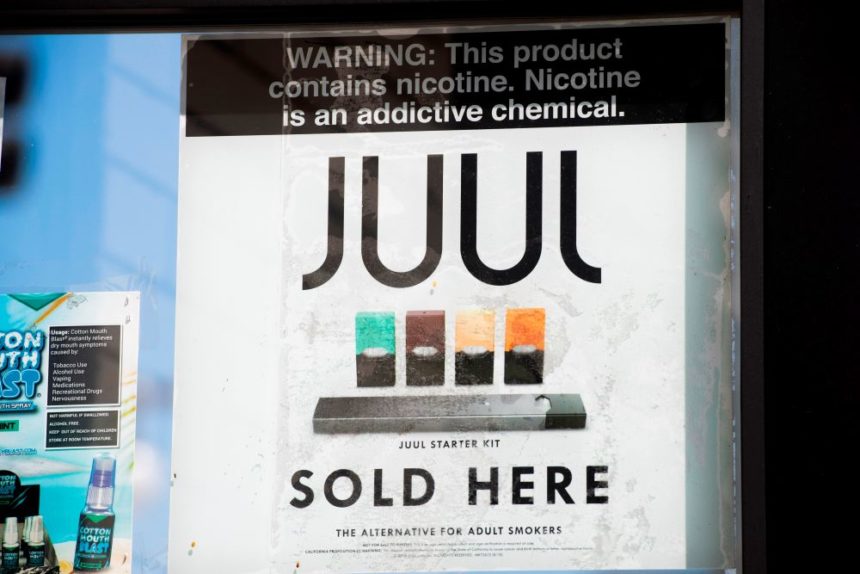Juul has suspended more of its advertising as it faces pressure over teen vaping and its marketing practices.
The company said on Wednesday morning that it is ending its broadcast, print and digital product advertising and will not lobby the Trump administration on a draft guidance that the Food and Drug Administration is developing. However, Juul did not say it would cease other types of marketing, like outdoor and point-of-sale advertising.
Juul said it is ceasing some types of marketing as it announced CEO Kevin Burns is stepping down. Burns will be replaced by K.C. Crosthwaite, who was previously chief growth officer at Altria, which owns a stake in Juul.
Juul has pulled back its advertising spend in recent years, according to research published in Tobacco Control this year. In the second half of 2015, the company spent more than $1.6 million on b-to-b, internet display, radio and outdoor ads, according to the study. The next year, that dropped to just more than $500,000, and in 2017, it fell even further to $19,000.
The study, which pulled data from Kantar, didn’t account for spending on point-of-sale or direct-to-consumer ads.
Other details about Juul’s marketing strategy came to light this year after the House Oversight Subcommittee on Economic and Consumer Policy obtained thousands of internal documents and emails before a hearing with Juul executives.
The documents showed that Juul paid thousands of dollars to schools and community groups to provide “youth prevention and education” to middle- and high-school students focused on topics like stress relief, resisting peer pressure and the dangers of e-cigarettes.
The documents also detailed Juul’s efforts to recruit influencers to promote its products. The company has since ended its influencer and social media marketing after critics said it targeted youth.
Health officials have been working to stop the spread of teen vaping with proposals to eliminate flavored vape products and to begin education efforts. Some cities and states have completely banned the sale of e-cigarettes to address both teen vaping and the proliferation of a vaping-related lung illness.








